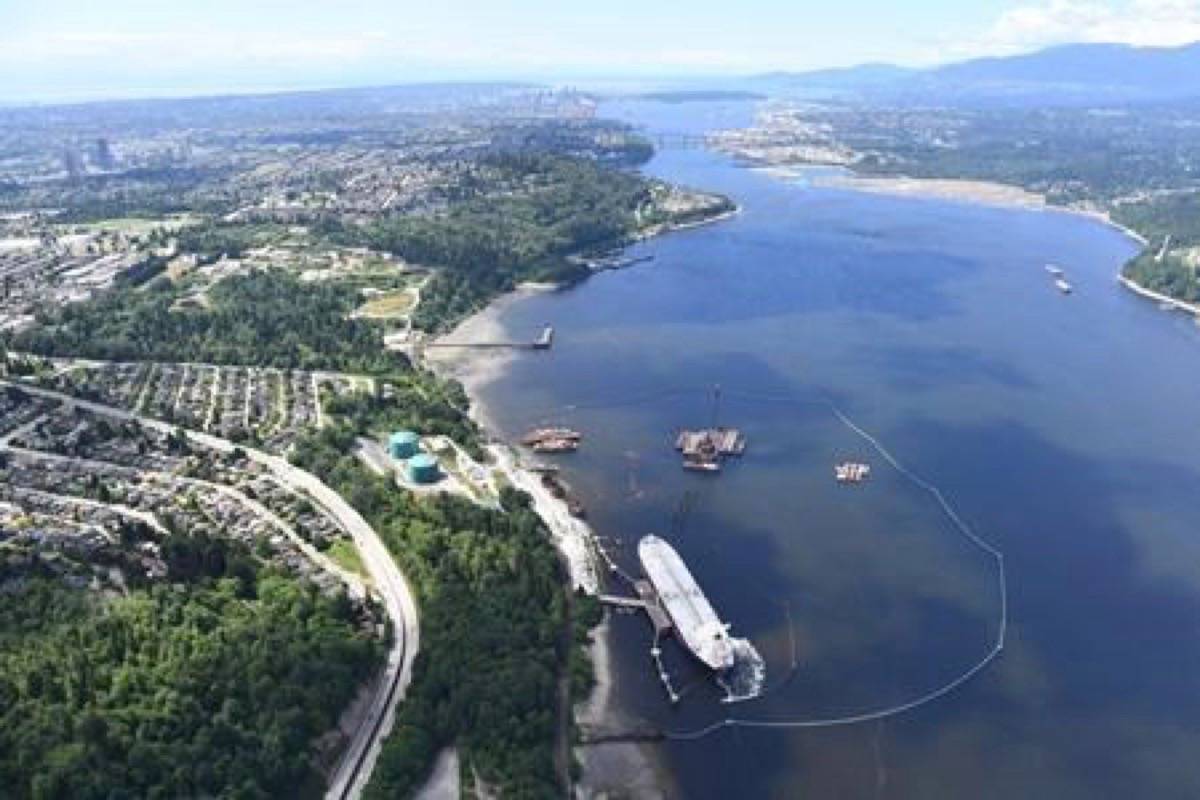The Canadian government says B.C. is trying to obstruct the Trans Mountain pipeline expansion with “Trojan Horse” legislation that the province is passing off as a benign environmental measure.
Lawyer Jan Brongers asked the B.C. Court of Appeal on Wednesday to reject proposed amendments to the province’s Environmental Management Act, because the changes aim to regulate interprovincial oil projects that fall under federal jurisdiction.
Trans Mountain court hearing: B.C. says it won’t reject pipelines without cause
“This legislation appears to be a Trojan Horse. It’s one that is designed to appear as constitutionally acceptable, local environmental protection measures,” he told a panel of five judges.
“But in substance, it’s an unconstitutional initiative that’s only logical reason for being is to limit federally-regulated pipelines and railways from moving additional heavy oil.”
The Appeal Court is hearing a reference case on the proposed amendments, which would enable B.C. to create a permitting regime for companies that transport hazardous substances through the province.
The province has argued it’s not attempting to block Trans Mountain or any other resource project, but is aiming to protect against ecological harm and require companies to pay for damages.
Brongers said the proposed amendments are clearly intended to hinder additional oil shipments because they’re selective, narrow and targeted.
The only hazardous substance covered by the amendments is heavy oil, Brongers said, and only companies that intend to increase the amount of heavy oil they’re transporting will need to get a permit.
“We still don’t know why the volume of diluted bitumen that’s in the existing Trans Mountain pipeline is somehow deserving of an automatic exemption from the regime, but the new volumes that would be carried by the expanded Trans Mountain pipeline are not,” Brongers said.
Justice Harvey Groberman challenged Brongers on that point, saying these are amendments to legislation and are presumably designed to deal with a new problem.
“The fact that it’s directed at that emerging or new problem doesn’t seem to me to prove anything other than that the legislation is targeted,” Groberman said.
The amendments also don’t apply to ships, and Brongers quoted B.C. Attorney General David Eby as saying last year that tankers were excluded because they are under federal jurisdiction.
Brongers said B.C. has suggested that heavy oil is the first of a number of hazardous substances to be targeted by the proposed permitting regime, but the province has not said what those other substances would be.
Premier John Horgan and other B.C. government officials have stated on multiple occasions, primarily while in opposition, that they were opposed to the Trans Mountain expansion and were looking for legal tools to stop it, Brongers noted.
After taking office in 2017, the minority NDP government received legal advice that it doesn’t have constitutional authority to directly stop the project, but it did have the authority to apply conditions and impose regulations to protect its coast, he said.
Brongers quoted Horgan as telling a reporter that the proposed amendments were about ensuring that increased heavy oil shipments through the province “don’t happen in the future.”
“The proposed legislation’s real purpose and effect, is the creation of a mechanism — a tool in the toolbox — to potentially impede additional heavy oil originating outside of British Columbia from being transported through the province,” Brongers said.
Laura Kane, The Canadian Press



